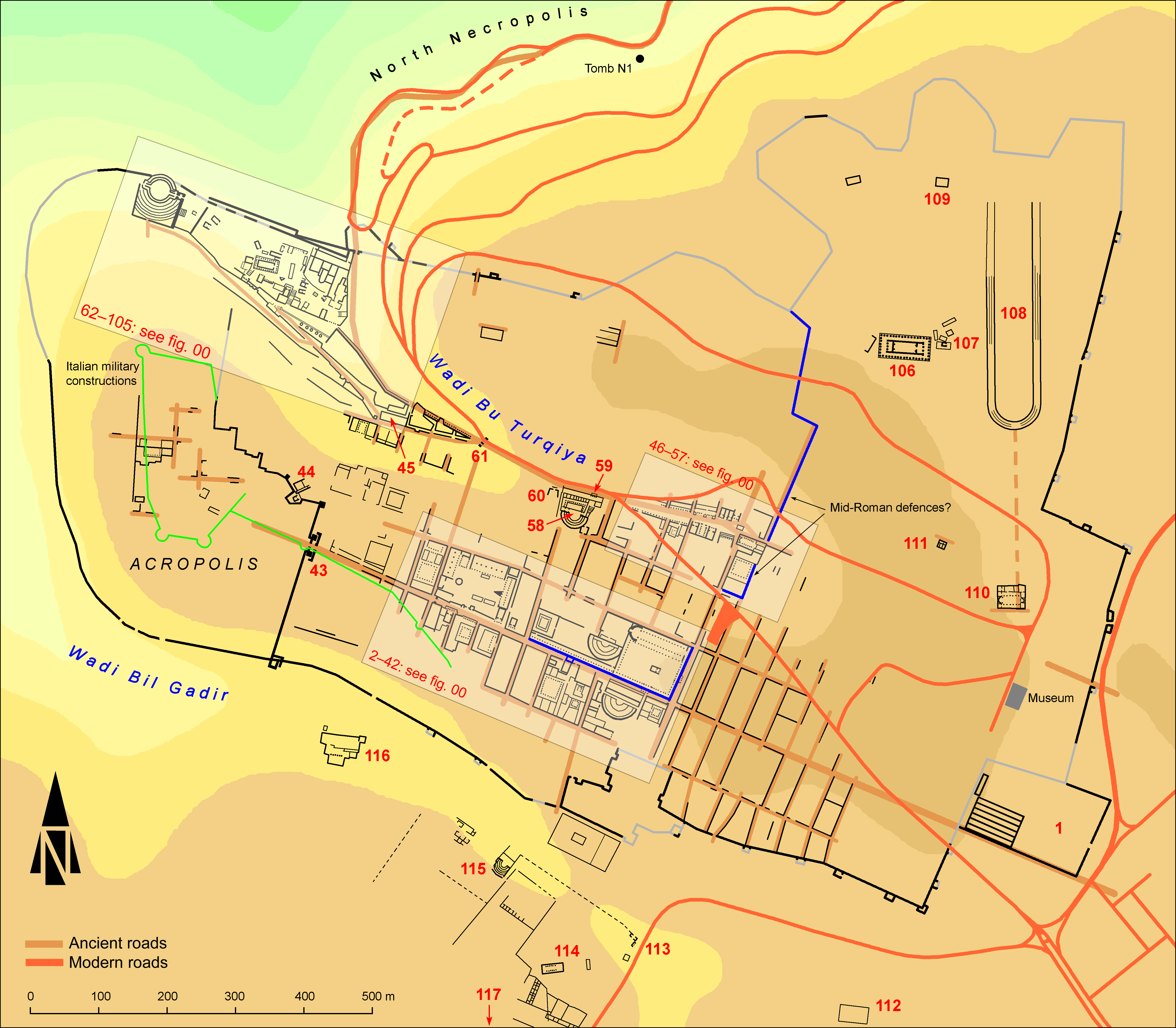EpiDoc XML:
IGCyr1047102
Trismegistos ID:
738570
Source description
Support: Small marble block broken off at left (w: 0.44 × h: 0.29 × d: 0.16).
Layout: Inscribed on the face.
Letters: 0.028.
Date: Admittedly Hellenistic
Findspot: First seen by D. Morelli in 1960 at Cyrene ➚: in a a rock-cut chamber uphill opposite the Stepped Portico (see commentary).
Last recorded location: Not found by IGCyr team.
Text constituted from: Transcription from previous editor.
Bibliography
Morelli in SECir, 256 (no image); IGCyr 104710 ➚.
Text
French translation
(scil. Untel) fils de Polianthès (scil. a consacré ce monument) à [---] Sôter.
English translation
(scil. So-and-so) son of Polianthes (scil. dedicated this monument) to [---] Soter.
Italian translation
(scil. Il tale) figlio di Polianthes (scil. ha dedicato questo monumento) a [---] Sotere.
Commentary
This inscription is known only from Morelli's transcription. His description of the provenance is inaccurate, as he speaks of «una delle tombe a monte della strada di Batto». Those rock-cut chambers, being inside the city walls, cannot be tombs. They were used as troglodytic habitations in modern times and may have also been so in antiquity, but are deprived of any archaeological context. One of them was also used as an interim shelter for antiquities at the beginning of World War II (see Goodchild – Reynolds 1976, p. 321). The position of this stone might be a late outcome of those events.
The date of this inscription is very uncertain, as is the use of the epithet Σωτήρ, either for Apollo or Zeus, the cult of whom expanded under the Ptolemies. In this prospect, it was conventionally decided to place it into the Hellenistic period. A formula with the dative does not seem to allow a third possibility, with Soter as epithet of one of the Ptolemies themselves, for such dedications have ὑπέρ and the genitive.
CC BY-NC-SA 4.0 Deed Attribution-NonCommercial-ShareAlike 4.0 International License.
All citation, reuse or distribution of this work must contain a link back to DOI: https://doi.org/10.60760/unibo/igcyrgvcyr2 and the filename (IGCyr000000 or GVCyr000), as well as the year of consultation.
